Submitting a Proposal
How Do I Submit a Proposal?
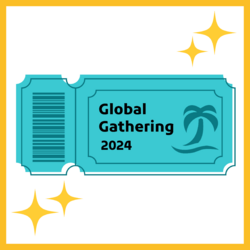
Before you submit a proposal…
Your Global Gathering application must be approved before you can submit a programming proposal. You can check to see if your application has been approved by logging into your Global Gathering account and viewing your dashboard: https://gathering.digitalrights.community/
Submitting your proposal…
- Log into your Global Gathering account: https://gathering.digitalrights.community/
- Select Submit a Proposal from your account dashboard. This will take you to the programming submission form. On the top of the form, you will find detailed explanations of activities and themes. On the bottom of the form, you will find the fields you have to fill out.
- If your proposal is accepted, you must commit to the following:
- In August we will send you the date and time of when your Circle or Booth will take place. You must confirm.
- You must attend at least one facilitator workshop. We will offer different instances in August and September.
- You must commit to reading the Facilitator Manual, which will provide you with tips and advice for hosting your Circle or Booth.
The deadline for submissions has been extended to June 30! Expect to hear a decision from us by the first week in August.
| Questions? Reach out to [email protected] |
What Are Circles and Booths?
You can submit as many Booth and Circle proposals as you would like. Each activity must have a main contact with whom TCU will communicate about your proposal status and coordination. In the case of Circles, the main contact will be the facilitator. In the case of Booths, the main contact will be the coordinator.
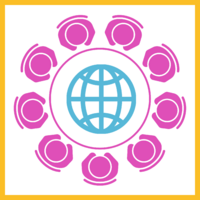
| Circles can be either a collaborative discussion or meetup facilitated by one or more participants that run 45 minutes. A Circle brings people together to explore or exchange information about a certain topic or enhances networking between peoples that share similar goals, interests, or commonalities. For example, a proposed Circle can range from “Circumvention Tech Challenges in X Country” to “X Regional Meetup”.
If you propose a Circle, you are committing to being trained virtually by Team CommUNITY before you arrive in Estoril, Portugal, on how to facilitate it. The details about this training will be communicated on time to make it feasible. |

| Booths allow individuals to showcase their project, work, initiative or organization, run a tool demo, or even conduct a skillshare or support desk. It allows you the opportunity to have more direct, one-to-one communication with GG participants. Your two-hour shift will run in one of the many permanent and electricity-powered, wooden kiosks.
You can decorate your Booth as you see fit, as well as bring your computer or devices with the virtual materials you want to showcase. Need more than a two-hour shift for your Booth? We encourage you to check out our Partners Program by emailing [email protected]. |
Global Gathering Proposal Tracks
Proposals will be evaluated by TCU with equal distribution of activities across all our four Global Gathering tracks. Any proposed Circle or Booth must be submitted under one of the four tracks listed below:
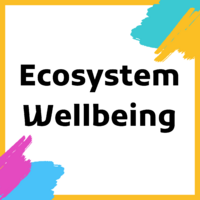
| Ecosystem Wellbeing: Sustainability and wellbeing of the digital rights ecosystem. This track will be a unique opportunity to promote dialogues between different stakeholders to advance policies and practices that strengthen organizations and networks in the ecosystem and impact the quality of the work we produce.
Sample Issues: Building the capacity of local / regional networks, building impactful collaborations across regional and professional lines, attracting and onboarding new talent to the ecosystem, labor rights for digital rights defenders, sustainability of small- and medium-sized organizations working on digital rights, improving funding and grantmaking scenarios, equity and inclusion… |
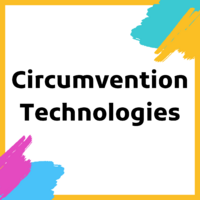
| Circumvention Technologies: Dedicated to developers and maintainers of any type of circumvention infrastructure. This track facilitates spaces where public-interest technologists from all over the world will be able to exchange ideas, experiences and eventually produce new projects.
Sample Issues: VPNs, pluggable transport technologies, encryption, addressing evolving censorship mechanisms, internet blackouts, building technologies for highly censored regions, autonomous infrastructures… |
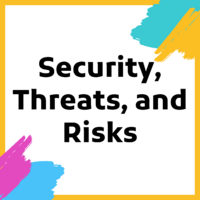
| Security, Threats and Risks: This track presents security in a holistic context, focusing on the risks impacting freedom of expression, freedom of information, and privacy, security and safety of civil society. Diverse stakeholders, ranging from security experts and tech developers to journalists and media specialists, can collectively brainstorm.
Sample Issues: Journalists at risk, media co-option by political agendas, digital security for dissenting voices, security of civil society spaces and organizations, confronting evolving surveillance, improving threat information sharing… |
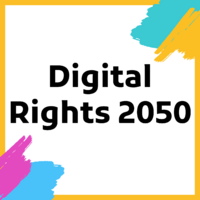
| Digital Rights 2050: This track focuses on anticipating scenarios of action for the global community of digital rights defenders, for example emerging threats. Digital rights is a field that constantly needs to incorporate new topics and challenges given the fast developments in digital technologies and their impact on society. This theme is meant to give us some time to reflect and think about what's coming down the pipeline.
Sample Issues: General emerging challenges, climate and tech, the future of human rights and tech, inter-regional collaboration for policy work, art and digital rights, civic tech, copyleft, internet governance… |